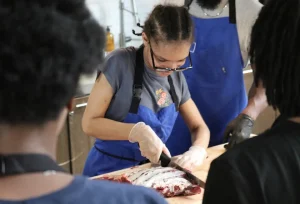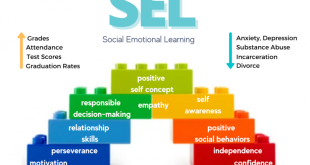As students progress through their education, many express a growing interest in understanding career options and the skills needed to succeed in the workforce. However, there is often a disconnect between students’ desires for career-related education and the resources provided by high schools. This article explores the importance of career education in high schools, the current challenges, and potential strategies for improvement. The Need for Career Education
The Need for Career Education
1. Changing Job Market
The job market is evolving rapidly due to technological advancements and globalization. Students need to be aware of emerging careers and the skills required in various fields. Career education can help them navigate these changes and make informed decisions about their futures.
2. Informed Decision-Making
Understanding different career paths allows students to make better choices regarding their education and training. Early exposure to various professions can help them align their interests and strengths with potential career opportunities.
3. Skill Development
Career education helps students develop essential skills, such as critical thinking, problem-solving, and communication. These skills are not only vital for specific careers but also enhance students’ overall academic performance.
Current Challenges in High Schools
1. Limited Resources
Many high schools face budget constraints that limit the availability of career counseling, workshops, and experiential learning opportunities. This lack of resources can hinder students’ exposure to career options.
2. Curriculum Focus
Traditional high school curricula often prioritize academic subjects over career education. This focus can leave little room for exploring vocational training, internships, or career-related projects.
3. Insufficient Guidance
Career counseling is often minimal, with many students lacking access to knowledgeable advisors who can guide them through the multitude of career options available.
Strategies for Improvement
1. Integrating Career Education into the Curriculum
High schools can incorporate career education into existing subjects, allowing students to explore real-world applications of their studies. For example, math classes could include budgeting exercises, while science classes could explore careers in healthcare or engineering.
2. Expanding Career Counseling Services
Investing in career counseling services and hiring qualified advisors can provide students with the guidance they need to explore their options and make informed decisions about their futures.
3. Partnerships with Local Businesses
Developing partnerships with local businesses and organizations can create opportunities for internships, job shadowing, and mentorship programs. These experiences provide students with practical insights into various careers.
4. Career Fairs and Workshops
Hosting career fairs and workshops can expose students to a wide range of professions. Inviting guest speakers from diverse fields can help students understand the skills and education required for various careers.
5. Encouraging Extracurricular Activities
Encouraging students to participate in clubs, organizations, or volunteer opportunities related to their interests can help them gain valuable experience and explore potential career paths.
Conclusion
Students are eager to learn more about careers, and high schools have a critical role to play in meeting this demand. By integrating career education into the curriculum, expanding counseling services, and fostering partnerships with local businesses, high schools can empower students to explore their interests and prepare for successful futures. Addressing the gap between students’ career aspirations and educational opportunities is essential for equipping the next generation with the knowledge and skills they need to thrive in a dynamic job market.



d9sq85